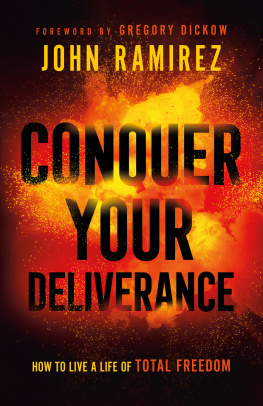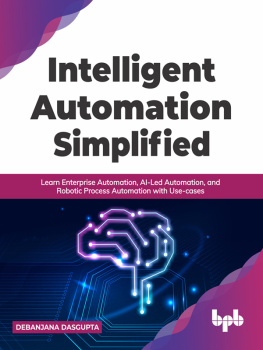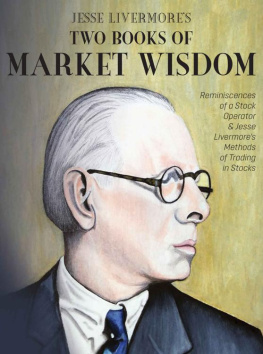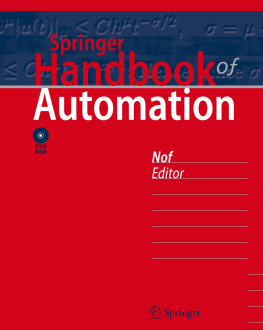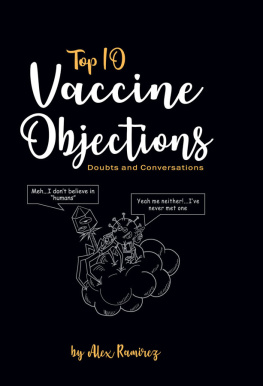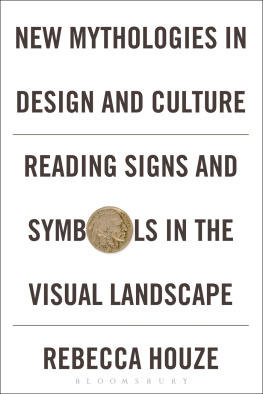
Against Automation Mythologies
Inspired by Roland Barthess practice of semioclasm in Mythologies , this book offers a technoclasm; a cultural critique of US narratives, discourses, images, and objects that have transformed the politics of automation into statements of fact about the rise of the robots.
Treating automation as an ensemble of technologies and science fictions, this book foregrounds automations ideologies, exaggerations, failures, and mystifications of the social value of human labor in order to question accepted and prolific automation mythologies. Jesse Ramirez offers a study of automation that recognizes automation as a technosocial project, that uses the tools of cultural studies and history to investigate the narratives and ideologies that often implicitly frame the automation debate, and that concretely and soberly assesses the technologies that have made the headlines. The case studies featured include some of the most widely cited and celebrated automatic technologies, such as the Baxter industrial robot, the self-driving car, and the Watson AI system.
An ideal resource for anyone interested in or studying emerging technology and society, automation, Marxian cultural theory, cultural studies, science fiction studies, and the cultural history of technology.
J. Jesse Ramrez is Assistant Professor of American Studies at University of St. Gallen, Switzerland. His research and scholarship explore American cultural, literary, and intellectual history, digital media and technologies, the cultural history of automation, science fiction and utopia, and ethnic studies. He is particularly interested in narratives regarding the future of technology and work.
Against Automation Mythologies
Business Science Fiction and the Ruse of the Robots
J. Jesse Ramrez
First published 2021
by Routledge
52 Vanderbilt Avenue, New York, NY 10017
and by Routledge
2 Park Square, Milton Park, Abingdon, Oxon, OX14 4RN
Routledge is an imprint of the Taylor & Francis Group, an informa business
2021 J. Jesse Ramrez
The right of J. Jesse Ramrez to be identified as author of this work has been asserted by him in accordance with sections 77 and 78 of the Copyright, Designs and Patents Act 1988.
All rights reserved. No part of this book may be reprinted or reproduced or utilised in any form or by any electronic, mechanical, or other means, now known or hereafter invented, including photocopying and recording, or in any information storage or retrieval system, without permission in writing from the publishers.
Trademark notice : Product or corporate names may be trademarks or registered trademarks, and are used only for identification and explanation without intent to infringe.
Library of Congress Cataloging-in-Publication Data
A catalog record for this title has been requested
ISBN: 978-0-367-52014-4 (hbk)
ISBN: 978-0-367-52028-1 (pbk)
ISBN: 978-1-003-05608-9 (ebk)
Typeset in Times New Roman
by Deanta Global Publishing Services, Chennai, India
For my family
Contents
PART I
Business Science Fiction
PART II
Original Automation
PART III
Disenchanted Objects
Portions of this book have appeared in the following publication:
Race and Robots The American Studies Association. This article first appeared in American Quarterly 72, no. 1 (March 2020): 291300. Published by Johns Hopkins University Press.
Roland Barthess Mythologies (1957) defines myth as the transformation of history into nature. Instead of concealing history below surface appearances, myth puts its objects on display and purifies them: it makes them innocent, it gives them a natural and eternal justification, it gives them a clarity which is not that of an explanation but that of a statement of fact. The principles enable Barthes to challenge meanings in objects that people commonly treat as being just so. Like all great works of politically engaged cultural studies, Mythologies expands the boundaries of meaning and activates the taken-for-granted as a site of analysis.
Though my scope is narrower than his, this book shares Barthess project of closely and critically analyzing the mythological conversion of history into nature. Call it a work of technoclasm, a set of essays in the breaking of technological myths. In the following, I focus on a constellation of US narratives, discourses, common sense, images, and objects that change the cultural politics of automation into statements of fact about the rise of the robots and second machine age. The optimists prophesy that the latest digital technology will create many new jobs, the doomsayers claim that it will trigger a jobs apocalypse, but both sides presume that technology is a force of natureobjective, apolitical, inexorable, automatic. In one of the few essays on technology in Mythologies , Barthes observes that myth turns the Citron DS into a sheer thing: in this object there is easily a perfection and an absence of origin, a completion and a brilliance, a transformation of life into matter.
In addition to Barthes, Against Automation Mythologies draws on four intellectual streams to press quit on the automation of automation. First, I begin with what Judy Wajcman describes as the founding principle of the historical and constructivist traditions in science and technology studies: all technologies are inherently social in that they are designed, produced, used and governed by people.
Finally, and most importantly, Against Automation Mythologies is a work of science fiction studies. Spanning the entire cultural life of speculation, sf studies objects range from genre sfthe popular media that are labeled or otherwise recognizable as sci-fito science-fictionality , a general orientation toward futurity that pervades discourses and practices beyond the specificities of mass-cultural genres. This book treats automation as sf in both senses. Automation names a collection of objects, systems, and practices and their imagined relations within an sf megatext of prospective and counterfactual discourses that encompass genre sf and the science-fictionality of American culture more broadly.
There were two major waves of automation discourse in the twentieth-century United States: the Depression-era debates over mechanization (19291940) and the hopes and anxieties of the short American Century (19451973), when the term automation was coined. (One could add briefer moments in the 1980s and early 1990s.) Since the Great Recession of 2008, we have been in a third periodthe era of collaborative robots and AI, Watson and AlphaGo, Siri and Alexa, self-driving cars and smart homes. Todays dominant automation myths have narrativized these technologies in the form of what I call business sf.
Extrapolating from the premise of capitalisms technological dynamism, todays leading prophets of automation foresee a civilization-changing redistribution of mental and manual labor through robots, artificial intelligences, and myriad other automated systems. The two main strands of business sf differ not in their assumptions but in their assessments of how smoothly society can adjust to the coming technological rupture. Utopian business sf foresees a technological revolution that will not simply restore economic growth but even push it far beyond pre-Recession levels. In the coming consumer paradise, everything from hamburgers to health care will be cheaper, more widely and instantaneously available, and higher quality. Transportation will be safer and more environmentally friendly. Cities will be liberated from traffic jams and, thanks to predictive policing, crime-free. We will have more leisure time, but work itself will become more satisfying because robots and smart software will take over the most monotonous or dangerous tasks, freeing us to focus on more interesting and valuable activities. Displaced workers will retrain and upskill. The entire system will be overseen by a benevolent corporate alliance of engineers, scientists, and capitalists, with governments providing socialized research funding and minimizing interference in privatized accumulation. In its most exulted formthe Singularity, or the rapture for nerdsutopian business sf foresees the transcendence of mortality itself. When, in contrast, dystopian business sf uses automation to explain the weakness of the post-Recession recovery and predicts that unemployment will only intensify as robots take over virtually all repetitive jobs, this discourse simply shows us the other side of the techno-deterministic coin. Dystopian business futurists share their counterparts faith in relentless innovation but advocate for a limited basic income to ensure that everyone can consume his or her portion of the automated cornucopia under conditions of mass technological unemployment.




